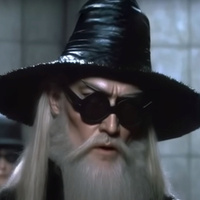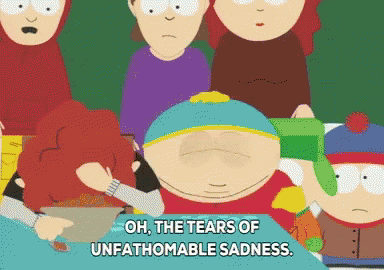
Ћина-Средње Краљевство

- Posts : 22555
Join date : 2014-12-01
- Post n°501
 Re: Ћина-Средње Краљевство
Re: Ћина-Средње Краљевство
Pa nista, neka presele fabrike u Indiju ili ih vrate u Ameriku i Kanadu 


- Posts : 52531
Join date : 2017-11-16
- Post n°502
 Re: Ћина-Средње Краљевство
Re: Ћина-Средње Краљевство
Pa da su pametni to bi i uradili.

- Posts : 10694
Join date : 2016-06-25
- Post n°503
 Re: Ћина-Средње Краљевство
Re: Ћина-Средње Краљевство
KinderLad wrote:Staljin je bolje razumevao razliku izmedju smrti jednog, dvoje, troje i hiljada
Kinezi izvoze u US i Kanadu, ne obrnuto.
Izvoze iphone...
Pa to sam premestanjem nije bas tako jednostavno jer kinezi drze prakticno monopol na retke zemlijne metale a oni su neophodni u proizvodnji svih visokotehnoloskih uredjaja i tzv. obnovljivih izvora energije.

Amid Tension, China Blocks Vital Exports to Japan
HONG KONG — Sharply raising the stakes in a dispute over Japan’s detention of a Chinese fishing trawler captain, the Chinese government has blocked exports to Japan of a crucial category of minerals used in products like hybrid cars, wind turbines and guided missiles.
https://www.nytimes.com/2010/09/23/business/global/23rare.html
E sada, postoji mogucnost delimicne dislokacije proizvodnje iz Kine ali ima jedan problem-taj koji bi u velikoj meri mogao da nadoknadi se zove Rusija.
Zar to nije sjajno?!
Da zanemarimo to da bi veliki trgovinski sukob sa Kinom znacio velike stete zapadu od SAD do Nemacke posto je Kina najveca trgovacka sila na svetu a ne SAD. Nije lako napusiti to veliko trziste sa izgradjenim lancom prozivodnje dekadama unazad...
Kina nije SSSR. Niti su Kinezi Rusi.
Napravili su veliku gresku kada su otvarali Kinu...
Kako je ovo opustajuce.

- Posts : 52531
Join date : 2017-11-16
- Post n°504
 Re: Ћина-Средње Краљевство
Re: Ћина-Средње Краљевство
Napravili su veliku gresku kada su otvarali Kinu...
Jesu

- Posts : 10694
Join date : 2016-06-25
- Post n°505
 Re: Ћина-Средње Краљевство
Re: Ћина-Средње Краљевство
Huawei unveils world's first core 5G chipset, announces 30 worldwide 5G commercial contracts
By Chen Qingqing Source:Global Times Published: 2019/1/24 21:03:40China's Huawei Technologies launched the world's first core chip specifically designed for 5G base stations on Thursday in Beijing, securing its leading position for 5G deployments in spite of US-led efforts to contain China's technological rise.
The chipset, called Tiangang, will support simplified 5G networks and large-scale network deployment around the world, Ryan Ding, the company's executive director of the board and CEO of carrier business group, said at a launch event in Huawei's R&D center in Beijing.
The company has now secured 30 commercial 5G contracts, over 50 percent of which are in Europe. It has also shipped over 25,000 5G base stations globally.
The new chipset is claimed to be the first of its kind in 5G industry, with major breakthroughs in integration, computing power and spectral bandwidth, which can be deployed in just half the time it took to install a 4G station. These features will help lower the network deployment costs.
Some Western countries which are also allies of the US have been blocking Huawei from participating in 5G construction and deployment, citing national security concerns, but the Chinese telecoms maker still has gained commercial contracts in Europe.
"These concrete business deals further demonstrate its capability of delivering sound and sustainable networks," Xiang Ligang, chief executive of telecom industry news site cctime.com, told the Global Times on Thursday.
The company also launched its first 5G Modem named Balong 5000, which is claimed to the most powerful single-chip that supports different architectures.
Huawei's full-series-all scenarios simplified 5G products make the next generation of wireless technologies ready.
"Although governments in some European countries have been considering blocking Huawei from providing 5G equipment, they won't stop local carriers choosing the Chinese telecoms equipment provider for efficient but cheaper products," Xiang said, adding that the growing number of 5G commercial contracts Huawei has won also proved that Huawei's products are in line with local security standards in Europe.
Huawei began rolling out commercial networks in 2018, leading in commercial 5G products, field testing and getting ready for large-scale 5G commercial use.
"Compared to foreign rivals such as Intel and Qualcomm, Huawei's full-series 5G engagement is a major edge," Li Zhen, an industry expert at Beijing-based CCID Consulting, told the Global Times on Thursday. "However, there's still room for the Chinese firm to catch up in terms of producing chipsets with better performance compared to other major chipmakers like Qualcomm," he said.
Still, Huawei's founder Ren Zhengfei appeared to be confident in a recent interview that the hostile attitude in the West will not hinder the company's development in 5G.
"Some countries have decided not to buy equipment from Huawei. Therefore, we can shift our focus to better serve countries that welcome Huawei," Ren said, noting that it can build high-quality networks in those countries to prove that we are trustworthy.
Huawei is also scheduled to unveil its first foldable 5G smartphone during the upcoming MWC 2019 in February in Barcelona, Richard Yu Chengdong, head of Huawei consumer business group told the audience on Thursday.
"As the company launches more 5G products, we can see the 5G era has already come into a reality," Xiang said.

- Posts : 10694
Join date : 2016-06-25
- Post n°506
 Re: Ћина-Средње Краљевство
Re: Ћина-Средње Краљевство
Deutsche Telekom Warns Huawei Ban Would Hurt Europe 5G
Europe would fall behind the U.S. and China in the race to install the next generation of wireless networks if governments ban Chinese equipment supplier Huawei Technologies Co. over security fears, according to an internal assessment by Deutsche Telekom AG.
Officials at Europe’s largest telecommunication company have warned that removing Huawei from the list of suppliers of fifth-generation networks would delay roll-out of the technology by at least two years, said people familiar with a briefing paper written in recent weeks. The people asked not to be identified because the findings are confidential.
The Deutsche Telekom paper shows how nervous Europe’s telecom industry has become that governments could throw its carefully-laid network expansion plans into chaos. Huawei has become a leading supplier to phone companies in the region as they prepare to spend billions of euros on 5G to cope with surging data demand and support potentially lucrative applications such as self-driving cars, smart appliances and connected factories
In its internal assessment, Deutsche Telekom said 5G networks must be built on top of existing 4G infrastructure, which already relies extensively on Huawei gear. So if Huawei is banned outright and companies are forced to rip out all of its equipment, that would cost the industry many billions of euros, the people said.
Nema huawei, nema mercedes...
Huawei Is Blocked in U.S., But Its Chips Power Cameras Everywhere
Strasno, kuda ovaj svet ide.
Justin Trudeau fires Canadian ambassador to China over Huawei executive extradition remarksExtradition of Meng Wanzhou to US for fraud charges ‘would not be a happy outcome’, John McCallum said

- Guest
- Post n°508
 Re: Ћина-Средње Краљевство
Re: Ћина-Средње Краљевство
pritom je dojče t vlasnik t mobajla (paće) od koga je huavei (ameri kažu) krao tehnologiju za testiranje telefona
ostin pauers film
The other indictment charges Huawei with stealing cell phone testing technology from T-Mobile. And Huawei is accused of stealing the technology in the most literal sense: according to the indictment, a Huawei employee entered a T-Mobile testing lab, put a proprietary robot arm into his laptop bag, and walked out. The heist was the final step in Huawei's increasingly aggressive efforts to learn how T-Mobile's smartphone testing system works.
ostin pauers film

- Posts : 8696
Join date : 2016-10-04
- Post n°509
 Re: Ћина-Средње Краљевство
Re: Ћина-Средње Краљевство
Занимљиво је како су САД објавиле рат Хуавеију чим их је претекао у технологији. Одмах иду тужбе, бриге због сигурности (вероватно јер неће моћи да сами прате више), притисци на владе...
Где се деде слободно тржиште и све то што су причали док су они водили у технологији.
Где се деде слободно тржиште и све то што су причали док су они водили у технологији.

- Guest
- Post n°510
 Re: Ћина-Средње Краљевство
Re: Ћина-Средње Краљевство
Ц ц ц. Зли Амери и вредни Кинези. И вазда правдољубиви Срби.

- Posts : 15552
Join date : 2016-03-28
- Post n°511
 Re: Ћина-Средње Краљевство
Re: Ћина-Средње Краљевство
No Country wrote:Ц ц ц. Зли Амери и вредни Кинези. И вазда правдољубиви Срби.

_____
Što se ostaloga tiče, smatram da Zapad treba razoriti
Jedini proleter Burundija
Pristalica krvne osvete

- Guest
- Post n°512
 Re: Ћина-Средње Краљевство
Re: Ћина-Средње Краљевство
Filipenko wrote:Pa nista, neka presele fabrike u Indiju ili ih vrate u Ameriku i Kanadu
KinderLad wrote:Pa da su pametni to bi i uradili.
pročitah danas
https://www.nytimes.com/2019/01/28/technology/iphones-apple-china-made.html
A Tiny Screw Shows Why iPhones Won’t Be ‘Assembled in U.S.A.’
By Jack Nicas
Jan. 28, 2019
SAN FRANCISCO — Despite a trade war between the United States and China and past admonishments from President Trump “to start building their damn computers and things in this country,” Apple is unlikely to bring its manufacturing closer to home.
A tiny screw illustrates why.
In 2012, Apple’s chief executive, Timothy D. Cook, went on prime-time television to announce that Apple would make a Mac computer in the United States. It would be the first Apple product in years to be manufactured by American workers, and the top-of-the-line Mac Pro would come with an unusual inscription: “Assembled in USA.”
But when Apple began making the $3,000 computer in Austin, Tex., it struggled to find enough screws, according to three people who worked on the project and spoke on the condition of anonymity because of confidentiality agreements.
In China, Apple relied on factories that can produce vast quantities of custom screws on short notice. In Texas, where they say everything is bigger, it turned out the screw suppliers were not.
Tests of new versions of the computer were hamstrung because a 20-employee machine shop that Apple’s manufacturing contractor was relying on could produce at most 1,000 screws a day.
The screw shortage was one of several problems that postponed sales of the computer for months, the people who worked on the project said. By the time the computer was ready for mass production, Apple had ordered screws from China.
The challenges in Texas illustrate problems that Apple would face if it tried to move a significant amount of manufacturing out of China. Apple has found that no country — and certainly not the United States — can match China’s combination of scale, skills, infrastructure and cost.
In China, you will also find one of Apple’s most important markets, and over the last month the risks that come with that dependence have become apparent. On Jan. 2, Apple said it would miss earnings expectations for the first time in 16 years, mostly because of slowing iPhone sales in China. On Tuesday, the company is expected to reveal more details about its financial results for the most recent quarter and its forecast for the coming year.
The company could face more financial pressure if the Trump administration places tariffs on phones made in China — something the president has threatened to do.
Apple has intensified a search for ways to diversify its supply chain, but that hunt has homed in on India and Vietnam, according to an Apple executive who asked not to be named because the executive was not authorized to speak publicly. The company’s executives are increasingly worried that its heavy dependence on China for manufacturing is risky amid the country’s rising political tensions with the United States and unpredictability, this person said.
“The skill here is just incredible,” Mr. Cook said at a conference in China in late 2017. Making Apple products requires state-of-the-art machines and lots of people who know how to run them, he said.
“In the U.S., you could have a meeting of tooling engineers and I’m not sure we could fill the room,” he said. “In China, you could fill multiple football fields.”
Kristin Huguet, an Apple spokeswoman, said the company was “an engine of economic growth in the United States” that spent $60 billion last year with 9,000 American suppliers, helping to support 450,000 jobs. Apple’s Texas manufacturer, Flextronics, did not respond to requests for comment.
Mr. Cook helped lead Apple’s shift to foreign manufacturing in 2004, a move that cut costs and provided the enormous scale necessary to produce some of history’s best-selling tech products.
Apple contracted much of the work to enormous factories in China, some stretching miles and employing hundreds of thousands of people who assemble, test and package Apple products. That assembly includes parts made around the world — from Norway to the Philippines to Pocatello, Idaho — that are shipped to China.
The final assembly is the most labor-intensive part of building the iPhone, and its location often determines a product’s country of origin for tariffs.
Mr. Cook often bristles at the notion that iPhones are Chinese-made. Apple points out that Corning, at a factory in Kentucky, makes many iPhone screens and that a company in Allen, Tex., makes laser technology for the iPhones’ facial-recognition system.
Mr. Cook has also disputed that cheap labor is the reason Apple is still in China. But it doesn’t hurt. The minimum wage in Zhengzhou, China, home of the world’s biggest iPhone factory, is roughly $2.10 an hour, including benefits. Apple said the starting pay for workers assembling its products there was about $3.15 an hour. Compensation for similar jobs in the United States is significantly higher.
While it was one of Apple’s most powerful computers, the American-made Mac Pro also turned out to be one of its most expensive.
Chinese suppliers shipped their components to Texas. But in some cases, the Texas team needed new parts as designs changed, and engineers who were tasked with designing the computer found themselves calling machine shops in central Texas.
That is how they found Stephen Melo, the owner and president of Caldwell Manufacturing in Lockhart. Employees of Flextronics, the company hired by Apple to build the computers, in turn hired Caldwell to make 28,000 screws — though they would have liked more.
When Mr. Melo bought Caldwell in 2002, it was capable of the high-volume production Apple needed. But demand for that had dried up as manufacturing moved to China. He said he had replaced the old stamping presses that could mass-produce screws with machines designed for more precise, specialized jobs.
Mr. Melo thought it was ironic that Apple, a leader in offshore manufacturing, had come calling with a big order. “It’s hard to invest for that in the U.S. because that stuff is purchased very cheaply overseas,” he said.
He made do with his new machines, although he could not make the exact screws Apple wanted. His company delivered 28,000 screws over 22 trips. Mr. Melo often made the one-hour drive himself in his Lexus sedan.
A former Apple manager who spoke on the condition of anonymity said the Flextronics team had also been far smaller than what he typically found on similar Apple projects in China. It was unclear exactly why the project was understaffed, the manager said, speculating that it was because American workers were more expensive.
The manager said similar Apple jobs in China would include a roomful of people working to ensure that all materials were in place for production. In Texas, it was one worker, who often seemed overwhelmed, the manager said. As a result, materials were regularly out of place or late, contributing to delays.
Another frustration with manufacturing in Texas: American workers won’t work around the clock. Chinese factories have shifts working at all hours, if necessary, and workers are sometimes even roused from their sleep to meet production goals. That was not an option in Texas.
“China is not just cheap. It’s a place where, because it’s an authoritarian government, you can marshal 100,000 people to work all night for you,” said Susan Helper, an economics professor at Case Western Reserve University in Cleveland and the former chief economist at the Commerce Department. “That has become an essential part of the product-rollout strategy.”
Ms. Helper said Apple could make more products in the United States if it invested significant time and money and relied more on robotics and specialized engineers instead of large numbers of low-wage line workers. She said government and industry would also need to improve job training and promote the development of a supply-chain infrastructure.
But, she added, there is a low chance of all that happening.
Apple still assembles Mac Pros at the factory on the outskirts of Austin, in part because it has already invested in complicated and custom machines. But the Mac Pro has been a slow seller, and Apple has not updated it since its introduction in 2013.
In December, Apple announced that it would add up to 15,000 workers in Austin, just miles from the Mac Pro plant. None of the new jobs are expected to be in manufacturing.

- Posts : 52531
Join date : 2017-11-16
- Post n°513
 Re: Ћина-Средње Краљевство
Re: Ћина-Средње Краљевство
It’s a place where, because it’s an authoritarian government, you can marshal 100,000 people to work all night for you
To cisto da znamo kako bi stvari izgledale u nekom "kineskom" svetu

- Posts : 11623
Join date : 2018-03-03
Age : 36
Location : Hotline Rakovica
- Post n°514
 Re: Ћина-Средње Краљевство
Re: Ћина-Средње Краљевство
The minimum wage in Zhengzhou, China, home of the world’s biggest iPhone factory, is roughly $2.10 an hour, including benefits. Apple said the starting pay for workers assembling its products there was about $3.15 an hour. Compensation for similar jobs in the United States is significantly higher.
Pa ovi bolje plaćeni nego kvalifikovani fabrički radnici u Srbiji.
_____
Sve čega ima na filmu, rekao sam, ima i na Zlatiboru.
~~~~~
Ne dajte da vas prevare! Sačuvajte svoje pojene!

- Posts : 8696
Join date : 2016-10-04
- Post n°515
 Re: Ћина-Средње Краљевство
Re: Ћина-Средње Краљевство
Da, a cene su nekoliko puta manje.Летећи Полип wrote:The minimum wage in Zhengzhou, China, home of the world’s biggest iPhone factory, is roughly $2.10 an hour, including benefits. Apple said the starting pay for workers assembling its products there was about $3.15 an hour. Compensation for similar jobs in the United States is significantly higher.
Pa ovi bolje plaćeni nego kvalifikovani fabrički radnici u Srbiji.

- Posts : 10694
Join date : 2016-06-25
- Post n°516
 Re: Ћина-Средње Краљевство
Re: Ћина-Средње Краљевство
Kinezi imaju vece prosecne plate od Srbije kao i bdp po glavi stanovnika
A da vas podsetim da su pre 20 godina dolazili u raspalu Slobinu Srbiju. Od onda oni u proseli rasli 9% a mi ako je 3% dobro je.
China's median monthly wages in Shanghai ($1,135), Beijing ($983) and Shenzen ($938) are higher than they are in the newest European Union member, Croatia.
A da vas podsetim da su pre 20 godina dolazili u raspalu Slobinu Srbiju. Od onda oni u proseli rasli 9% a mi ako je 3% dobro je.

- Posts : 22555
Join date : 2014-12-01
- Post n°517
 Re: Ћина-Средње Краљевство
Re: Ћина-Средње Краљевство
KinderLad wrote:It’s a place where, because it’s an authoritarian government, you can marshal 100,000 people to work all night for you
To cisto da znamo kako bi stvari izgledale u nekom "kineskom" svetu
Hoces li ti ziveti tamo?
Inace, ja sam veoma zabrinut kao neko kome prilicno smeta kradja intelektualne svojine u kombinaciji sa 5G haosom. Jos ako bi tih 100 hiljada radnika imalo nekakva prava, to bi bio kraj ovog sveta.
Bonus: Naravno da su Kinezi placeniji od nas. Tamo je komunizam.

- Posts : 52531
Join date : 2017-11-16
- Post n°518
 Re: Ћина-Средње Краљевство
Re: Ћина-Средње Краљевство
Kljucna rec je Slobina Srbija

- Posts : 52531
Join date : 2017-11-16
- Post n°519
 Re: Ћина-Средње Краљевство
Re: Ћина-Средње Краљевство
Filipenko wrote:KinderLad wrote:
To cisto da znamo kako bi stvari izgledale u nekom "kineskom" svetu
Hoces li ti ziveti tamo?
Inace, ja sam veoma zabrinut kao neko kome prilicno smeta kradja intelektualne svojine u kombinaciji sa 5G haosom. Jos ako bi tih 100 hiljada radnika imalo nekakva prava, to bi bio kraj ovog sveta.
Bonus: Naravno da su Kinezi placeniji od nas. Tamo je komunizam.
Meni recimo ne smeta "kradja" IS. Ideologija intelektualne svojine je jedan od uzroka zaostajanja Zapada u razvoju u odnosu na Kinu

- Posts : 10694
Join date : 2016-06-25
- Post n°520
 Re: Ћина-Средње Краљевство
Re: Ћина-Средње Краљевство
KinderLad wrote:Kljucna rec je Slobina Srbija
Jeste kljucna jer govori koliko su oni napredovali a mi nismo.

- Posts : 10694
Join date : 2016-06-25
- Post n°521
 Re: Ћина-Средње Краљевство
Re: Ћина-Средње Краљевство
Filipenko wrote:KinderLad wrote:
To cisto da znamo kako bi stvari izgledale u nekom "kineskom" svetu
Hoces li ti ziveti tamo?
Inace, ja sam veoma zabrinut kao neko kome prilicno smeta kradja intelektualne svojine u kombinaciji sa 5G haosom. Jos ako bi tih 100 hiljada radnika imalo nekakva prava, to bi bio kraj ovog sveta.
Bonus: Naravno da su Kinezi placeniji od nas. Tamo je komunizam.
Komunisti su uvek kulacili radnike i seljake.
Sreca tvoja pa kineska ekonomija nije komunisticka inace bi bili kao Venecuela.
Po svemu oni podsecaju na fasisticku drzavu u ekonomiji sa komunsitickim simbolima, ako ce se govoriti o modelima.

- Posts : 41627
Join date : 2012-02-12
Location : wife privilege
- Post n°522
 Re: Ћина-Средње Краљевство
Re: Ћина-Средње Краљевство
Gargantua wrote:pritom je dojče t vlasnik t mobajla (paće)
Урођеници веле ти моубл. Моубајл је неко место у некој припиздини на средњем западу, а моубил постоји кад је ауто.
_____
cousin for roasting the rakija
И кажем себи у сну, еј бре коњу па ти ни немаш озвучење, имаш оне две кутијице око монитора, видећеш кад се пробудиш...

- Posts : 22555
Join date : 2014-12-01
- Post n°523
 Re: Ћина-Средње Краљевство
Re: Ћина-Средње Краљевство
Zuper wrote:Filipenko wrote:
Hoces li ti ziveti tamo?
Inace, ja sam veoma zabrinut kao neko kome prilicno smeta kradja intelektualne svojine u kombinaciji sa 5G haosom. Jos ako bi tih 100 hiljada radnika imalo nekakva prava, to bi bio kraj ovog sveta.
Bonus: Naravno da su Kinezi placeniji od nas. Tamo je komunizam.
Komunisti su uvek kulacili radnike i seljake.
Sreca tvoja pa kineska ekonomija nije komunisticka inace bi bili kao Venecuela.
Po svemu oni podsecaju na fasisticku drzavu u ekonomiji sa komunsitickim simbolima, ako ce se govoriti o modelima.
Ma jok, to planska izgradnja ide i komandna ekonomija cvetaju jer se slusaju zakoni trzista.


- Posts : 10694
Join date : 2016-06-25
- Post n°524
 Re: Ћина-Средње Краљевство
Re: Ћина-Средње Краљевство
Kejnz hvalio Musolinija zbog toga i kako je sprecio efekte Velike depresije...
Ali nisam cuo da u komunistickoj ekonomiji ima berze.
Ali nisam cuo da u komunistickoj ekonomiji ima berze.

- Posts : 41627
Join date : 2012-02-12
Location : wife privilege
- Post n°525
 Re: Ћина-Средње Краљевство
Re: Ћина-Средње Краљевство
Zuper wrote:
Ali nisam cuo da u komunistickoj ekonomiji ima berze.
А учи се то на економији, из ваљда политичке економије.
_____
cousin for roasting the rakija
И кажем себи у сну, еј бре коњу па ти ни немаш озвучење, имаш оне две кутијице око монитора, видећеш кад се пробудиш...



 by Filipenko Tue 15 Jan - 1:07
by Filipenko Tue 15 Jan - 1:07
 Nektivni Ugnelj
Nektivni Ugnelj